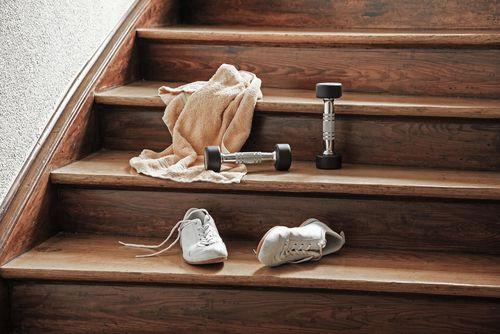Depression Medication Still Beats Out Sports; Exercise Alone Shows No Impact On Teen's Symptoms

Exercise can only make you so happy, and where the benefits end, depression continues to flourish, according to a new study that disillusions the belief exercise can cure teens. Researchers from the University of Cambridge studied how powerful of an anti-depressant exercise is, if any, and published their findings in the Journal of the American Medical Association.
Exercise releases feel-good brain chemicals such as endorphins, neurotransmitters, and endocannabinoids to make you happy, but researchers have found happiness is no match for depression. Parents and doctors tend to be more reluctant to medicate children and teens and try natural remedies before they move on to correcting their brain’s chemical balance pharmacologically. But a simple jog in the park every day is not going to cut it for some who were born or had developed chemical imbalances. Depression can be life-threatening and for teenagers navigating into the graces of adulthood, it can easily sway their young hormones and emotions to suicide.
Researchers followed 736 14-year-olds for three years and kept track of their levels of physical activity (PA) throughout the week and weekend. By the time the teens turned 17, researchers couldn’t find any link between PA and lower rates of depression. These findings finally put to rest the belief that a simple routine of exercise can counteract the mental and emotional burden of depression.
"Our findings do not eliminate the possibility that PA positively affects depressed mood in the general population; rather, we suggest that this effect may be small or non-existent during the period of adolescence," the study’s authors said in a press statement. "Our findings carry important public policy implications because they help to clarify the effect of PA on depressive symptoms in the general population. Although PA has numerous benefits to physical health in later life, such positive effects may not be expected on depressive outcomes during adolescence."
People have to stop believing nature has every remedy for our ailing and imperfect bodies. By the time adolescents and teens reach their 18th birthday, approximately 11 percent have a diagnosed depression, according to the National Institute of Mental Health, and who knows exactly how many more slip through the cracks undiagnosed each year. An imbalance of mood-related chemicals such as serotonin, norepinephrine, and dopamine has been found in a brain plagued with depression. The loss of these chemicals from depressive episodes cannot be fully replenished with soccer practice, dance recitals, or a karate lesson.
Medication, psychotherapy, or a combination of treatments can effectively treat depression, and most children and teens respond well. If youth are treated earlier on in their diagnosis before symptoms progressively worsen, experts have found they respond better over the course of time. Of course, children and teens should be closely monitored during the first initial weeks of treatment because everyone is different and there may be need for some tweaking and adjusting before balance is restored.
Source: Toseeb U. No Association Seen Between Physical Activity, Depressive Symptoms in Adolescents. JAMA. 2014.



























